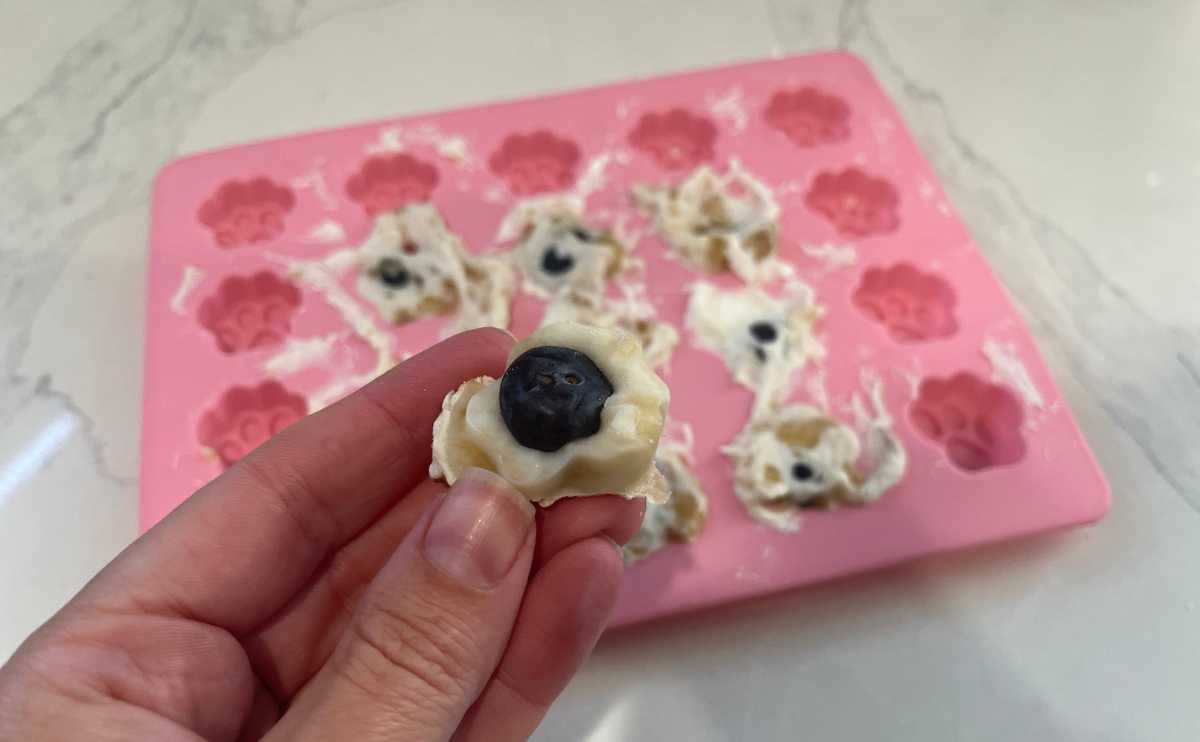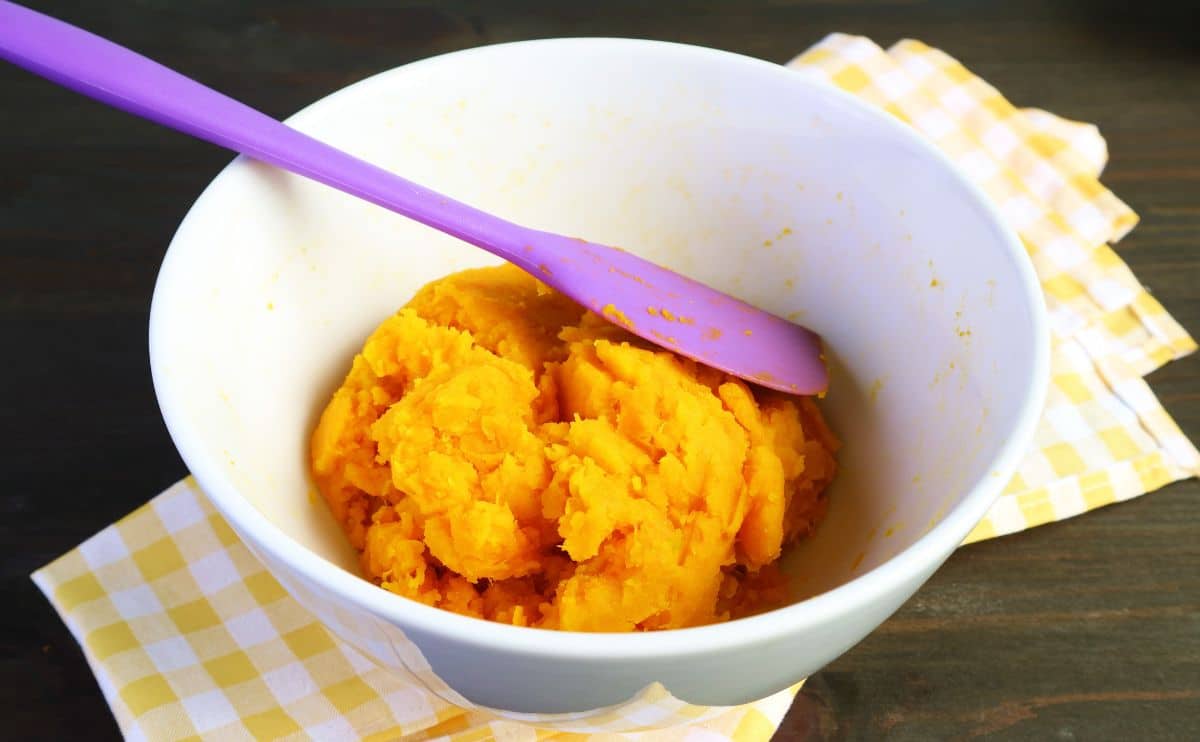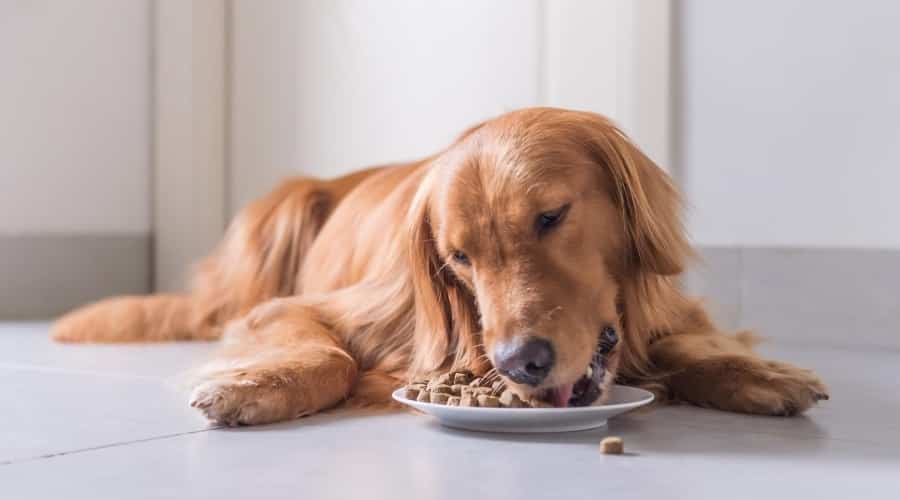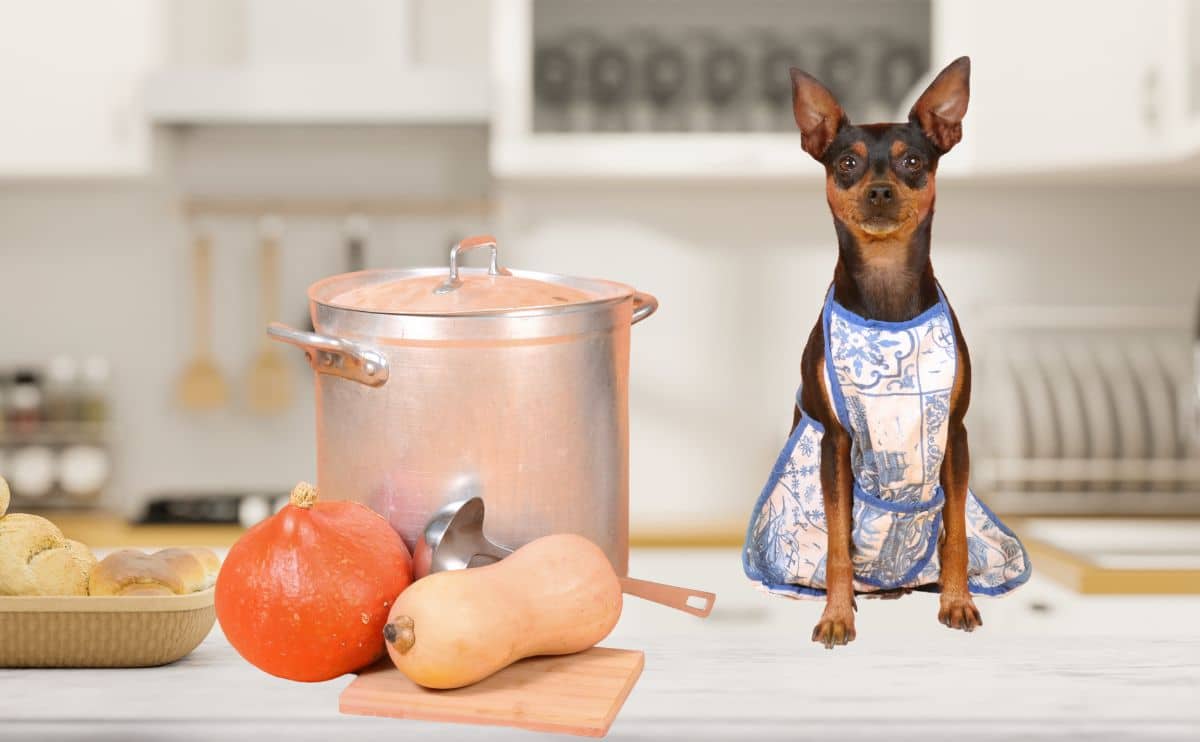Can Dogs Eat Peas? Benefits & Potential Risks
When you purchase through links on our site, we may earn a commission. Here’s how it works.
Lots of people enjoy peas. They are a sweet, nutritious little vegetable is a popular accompaniment to many dishes and is therefore found in most family households. These tiny green spheres pack a punch of nutrients for us, but can dogs also enjoy the goodness of peas?
Table of Contents
As responsible pet owners, we constantly strive to provide our furry companions with the best care, including a wholesome and balanced diet.
Let’s explore potential benefits of adding peas to your dog’s diet, helping you make informed decisions about what’s best for your four-legged friend’s overall well-being.
Are Peas Safe For Dogs?
Yes, the good news is that peas are ok for dogs. They are listed as a safe, low-calorie treat to offer your pet, according to the Pet Poison Helpline. This includes any pea that is unseasoned, including garden peas, petit poi, and sugar snap peas.
As with any vegetable, peas should only be given as an occasional treat. Any new food has the potential to cause tummy troubles, so you should only offer your pet a very small amount to start with. Vegetables should only ever make up 10% of your dog’s overall daily rations. Any more than this could mean your dog ends up with digestive issues, especially if they have a sensitive stomach.
So, even though peas are not toxic, moderation is key if you want to feed them to your pet.
Are Peas Good For Dogs?

Peas are a very popular vegetable as, unlike some other veggies, they are not bitter in taste and can be quite sweet. This means they are found in many people’s freezers or cupboards. The good news is that this vegetable is packed with vital nutrients. They are also low in calories which makes them a healthy snack or accompaniment to a meal. In people, peas have proven health benefits, so the same may be true for dogs too. Peas contain the following –
Protein
Peas are an excellent source of plant-based protein. Protein acts as a building block for muscle growth and repair. Plant-based proteins are particularly important for vegetarian people, whereas dogs will get most of their protein from animal sources in their usual dog food.
Vitamins
Peas contain Vitamin C, which aids in a healthy immune system as well as skin and connective tissue. Dogs don’t require an external source of this as they can manufacture their own, but in humans, peas can help to boost levels of this vital nutrient. Vitamins A, B, and K are also present, the latter of which is important for blood clotting.
Fiber
Vegetables such as peas can provide a good source of insoluble fiber which aids with healthy digestion. Fiber also helps to give a feeling of fullness which can be useful when on a weight reduction diet. It is worth keeping in mind that too much fiber could cause problems for our pets, so only feed in moderation.
Antioxidants
Antioxidants are compounds that mop up free radicals that cause oxidative damage to cells in the body. This sort of damage can contribute to health conditions like cancer. Peas are naturally high in lutein which is good for the heart, skin, and eyes.
When Are Peas Bad For Dogs?
Peas are listed as a safe vegetable to feed to your dog and can be fed to your pet raw, frozen, or cooked, making them very versatile. However, you should be aware of the following:
- Canned peas may be preserved with high levels of salt and other preservatives, so might be best avoided
- Although it might seem boring, it is important to make sure that you serve peas plain and unseasoned. Avoid any sauces, butter, or dressings, as these could cause tummy troubles or possibly even trigger an episode of pancreatitis. If fed in excess, peas can cause digestive upset, so only ever give in moderation. Vegetables should make up no more than 10% of your dog’s daily rations
- Take care when feeding peas to dogs with kidney disease. Peas are high in proteins, including purines, which can put extra strain on struggling kidneys. Stick to your dog’s usual diet, which will usually be a special prescription food if they have kidney issues.
- Don’t feed your dog pea-based dishes or snacks like pea fritters, samosas, or pea soup. Any health benefits from the peas might be lost once combined with high levels of salt, fat, and potentially harmful ingredients like onions.
If peas are something you’re considering feeding your dog, you should consider getting pet insurance before taking this chance. Pet insurance can help take the financial stress off your plate and allow you to focus on your dog’s health in an emergency.
Peas are safe for dogs to eat, but it is worth knowing that some other vegetables can be potentially harmful and even poisonous. These include the following –
Onions, Leeks, Shallots & Garlic
These are all members of the allium family, and they are all toxic to dogs. These vegetables can cause hemolytic anemia, a condition that affects the red blood cells causing them to become damaged. Over time this will cause your dog to become pale, weak, and even collapse as he struggles to get oxygen around his body.
Corn On The Cob
Corn on the cob is not toxic to dogs, and it could obstruct your dog’s digestive tract if they were to swallow the cob whole or a large chunk of it. This could require emergency surgery to retrieve. Only ever give your dog corn that has been removed from the cob.
Raw Potatoes
Uncooked potatoes contain solanine, which is a glycoalkaloid poison. Raw potatoes or potato peelings could cause a slow heart rate, digestive upset, and possible vision issues, so they are best avoided.
Chili Peppers
Chili peppers contain capsaicin, something that could irritate your dog’s stomach, causing tummy upsets like vomiting and diarrhea.
What Vegetables Are Safe For Dogs To Eat?
As well as peas, you might want to try your dog with some other vegetables as a treat. Just remember to stick to the 10% rule (vegetables should make up no more than 10% of the volume of your dog’s daily rations), and only ever feed occasionally to avoid tummy trouble.
Carrots
Most people know that carrots are safe to feed to our furry friends. Many dogs enjoy the texture of crunching down on a raw carrot, and it can be a good low-calorie alternative to their usual treats. However, bear in mind that carrots are relatively high in sugar compared to other veggies, so only give them occasionally.
Zucchini
Zucchini is non-toxic and is safe to feed to your dog in moderation. It can be fed raw or cooked but can be a little bit bland or even bitter. Many dogs do enjoy the texture of zucchini, though and so it can make a great low-calorie treat.
Pumpkin
Cooked or even canned pumpkin is safe for dogs as long as it isn’t seasoned. Raw pumpkin should be avoided, as it can be quite hard to digest. Pumpkin flesh is a good source of fiber and contains vitamins A, C, and E, as well as lycopene and potassium. The seeds are also safe to feed to dogs as long as they have been cleaned and roasted without any salt or seasonings.
Lettuce
Lettuce is safe to feed to dogs and may have a similar leafy texture to kale, but many won’t want to eat it as it can be a bit bland and watery. Some dogs will especially enjoy crunching on crisp iceberg lettuce. Lettuce has high water content and is lacking in nutrients compared to other veggies.
Cucumber
Cucumbers can make a great thirst-quenching, crunchy snack for dogs to enjoy safely. It can be fed with the skin on or off and makes a good low-calorie choice for dogs on a weight-reduction diet.
Green Beans
Green beans are non-toxic vegetables that can be eaten raw or cooked. Avoid giving vegetables that have been canned in saltwater or that have been heavily seasoned for your dog to eat. Green beans are an excellent course of fiber that can help with digestion, as well as vitamins A, C, and K.
Celery
Not all dogs will enjoy the taste. It is a good low-calorie crunchy snack. Celery contains vitamin A (good for eyesight), vitamin K (good for blood clotting), and fiber.
Can My Dog Eat Peas?
Yes, your dog can safely eat peas in moderation. However, it is worth noting that most dogs will be getting all the nutrients that they need from a good quality complete commercial dog food, so you shouldn’t need to buy anything extra to supplement this. Most owners just want to know whether they can safely share leftovers or table scraps with their pet. Hopefully, our guide to peas, as well as our list of safe vegetables, should help you to decide what is best for your pet.
Peas have some brilliant health benefits for people, and while a nutrient boost is no bad thing for our dogs, sticking to their normal commercial diet as much as possible is usually the best answer. However, the odd spoonful of peas now and then is unlikely to do any damage!
Frequently Asked Questions
How Many Peas Can I Give My Dog?
You should only give very small amounts of peas to your dog on an occasional basis. Even non-toxic vegetables can cause digestive issues if fed to excess. The advice is to never give your dog more than 10% of the volume of his daily rations. Otherwise, you could cause stomach upset.
What Happens If My Dog Eats Pea Pods?
As a rule, if you can eat the pea pod, then your dog should be able to tackle it too. With any sort of tough food, though, there is always the risk of choking, so perhaps avoid giving pods to puppies, small breeds, or brachycephalic dogs (flat-faced dogs). Garden peas are best served shelled, but if your dog accidentally eats a pod, it is unlikely to cause too many problems.
Are Peas Good For Dogs With Kidney Disease?
Peas are known for being very nutritious, and they do contain high levels of purines, which are naturally occurring compounds. When broken down by the body, this forms uric acid, which is processed by the kidneys. High levels can cause struggling kidneys to work extra hard, so it is best to stick to the diet prescribed by your vet if your dog has kidney issues.
Final Thoughts
With proper moderation and preparation, peas can be a nutritious and tasty treat for your furry companion, adding variety to their meals and contributing to their overall enjoyment of mealtime. Always prioritize your dog’s health and consult with your vet for personalized dietary recommendations, ensuring that your loyal friend remains happy, healthy, and well-fed.



